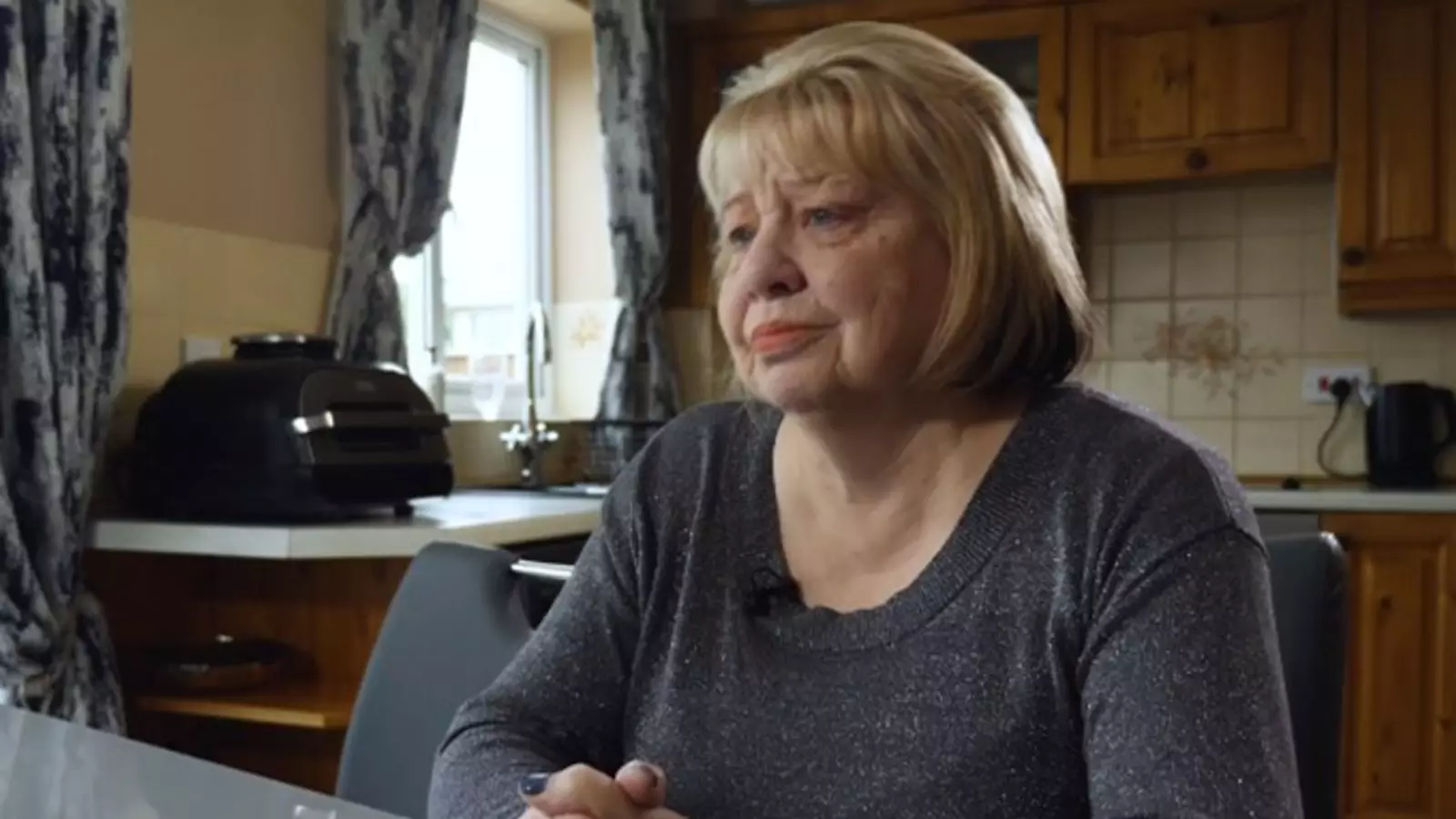In the wake of losing a loved one, the emotional burden can be indescribable. Diane Edwards, still raw from her ex-husband Mick’s passing, opens up about her experiences, sharing her story just ten days after his death. Her words reveal the brutal reality of caring for someone suffering from terminal illness, particularly when systems designed to provide support fail. Moments spent in the bathroom, nursing a man stricken by stage 4 bowel cancer, paint a vivid picture of heartbreak. The image of blood-stained bed sheets and the slow degradation of a once vibrant person echo the sorrow and confusion that often accompanies such a loss.
Diane describes the heartbreaking phenomenon of seeing someone you love transform into a shadow of themselves. The hope that once accompanied their relationship turns bitter as illness ravages not only the body but also the spirit. “They’re not the same people,” she reflects, struck by the harrowing change illness brings. This perspective dismantles the notion of grief solely as a response to death; it permeates the months and years spent witnessing a loved one’s struggle—sometimes worse than the final loss itself.
Mick’s deteriorating health was met with systemic inadequacies that left Diane feeling isolated. Despite having access to charity and care services, she details how the lack of proper medical training among carers exacerbated their struggles. “They weren’t medical carers,” she asserts, highlighting that emotional support can often fall short when medical knowledge is lacking. The situation became dire, with Diane reaching a breaking point—exhausted and overwhelmed by her double role as both emotional support and primary caregiver.
When Mick required hospital care, a temporary glimmer of hope arose in the form of an NHS Continuing Healthcare (CHC) package. This funding is intended for individuals with significant health and social care needs, but the subsequent assessment process proved to be a significant hurdle. Diane’s account reveals a frightening reality: she was often at the mercy of impersonal assessments conducted without the presence of family support. The decision to move from palliative care to social care left the family fearful of losing their home—adding another layer of stress to an already unbearable situation.
Compounded by technological limitations, the shift to remote assessments introduced a new barrier. Mick struggled with video conferencing, unable to convey his medical needs effectively. This is emblematic of broader issues within the healthcare system—vulnerable patients being assessed through a medium that does not suit their needs, leaving families like Diane’s feeling powerless. The repercussions of this disconnection—a drop in funding and the subsequent impact on care—serve to highlight the unintended consequences of healthcare policies that prioritize efficiency over individual needs.
As the Shropshire, Telford and Wrekin NHS Trust explained, their assessments follow a national framework; yet, their condolences felt hollow to Diane. The assessments, laden with potential for bias and variance depending on geographical location, often result in unequal access to essential care. The disparities revealed by research from the Nuffield Trust expose cracks in a system meant to provide aid—a system ill-prepared for the realities of palliative needs that require compassion and understanding.
Diane’s experience is a microcosm of the urgent crisis facing the social care landscape. The inconsistencies and inadequacies in CHC assessments reflect a broader systemic failure that is both shocking and troubling. The pressure on social care services in the UK is mounting, and calls for long-term reform have intensified. The implications of inadequate care extend well beyond the individual, impacting families and communities alike. As social care experts stress, immediate steps must be taken to address these failings while advocating for fundamental changes to the system.
As the conversation around assisted dying grows, Diane poignantly notes that Mick would have chosen this option had it been available. This speaks to a larger ethical discussion surrounding end-of-life choices and the rights of individuals facing terminal illness. Care should extend beyond mere survival; it should encompass dignity and choice in one’s final days.
The heart-wrenching experience of Diane Edwards underscores the profound struggles faced by caregivers and patients alike. The systemic shortcomings within healthcare provisions come to the fore, reflecting a pressing need for reform that addresses the complexities of terminal illness and ensures that individuals are treated with the dignity and compassion they deserve.

